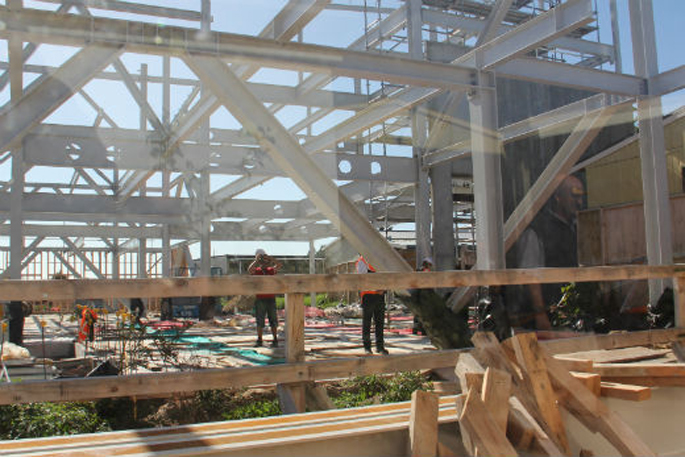The Government has announced criteria to access at least $1 billion of the $3.8 billion Housing Acceleration Fund, announced in March, is now available in the form of the Infrastructure Acceleration Fund.
Invitation for expressions of interest will be released on June 30 with Tauranga classed as a Tier 1 urban environment, where the expectation is the delivery of at least 200 additional homes.
Auckland, Wellington and Christchurch are also considered Tier 1 urban environments.
'This is a key milestone in our plan to accelerate the development of build-ready land to enable more homes to be built at pace and scale,” says Minister of Housing Megan Woods.
'The housing supply crisis is a problem decades in the making that will take time to turn around, but we are starting to make inroads on increasing supply and this fund will make a real difference to increasing the supply of housing by assisting in overcoming a key barrier to building – access to basic infrastructure.
'Investment in infrastructure was identified by local councils and others as one of the key actions the Government can take to increase the supply of housing in the short term.
'The Infrastructure Acceleration Fund is designed to allocate funding to infrastructure projects that will unlock housing development in the short to medium term.
'It will jump-start housing developments by funding necessary services, like roads and pipes to homes, which are currently holding up development.
She says the funding is about getting the most houses in the places across the country, where they are needed, happening as quickly as possible.
'It is available to councils, iwi and developers to start pitching for infrastructure funding, with successful projects weighted toward bringing on multiple, affordable new homes quickly and in the right places; in urban centres as well as in the regions,” Woods says.
Eligible projects include the new or upgrading of infrastructure for drinking water, wastewater, sewage, roading, and flood management, which wholly or primarily enable the building of new and additional homes.
Eligible costs include early-stage feasibility studies, design, consenting and in some cases land costs.
The IAF will be opened up to councils, Iwi and developers and will prioritise funding for:
· Brownfield intensification and greenfield expansion with access to amenities and opportunities
· Developments where infrastructure investments might otherwise not be funded or not funded quickly enough to meet housing demand
· A spread of projects across multiple regions including large urban areas and regional centres
· Value for money through co-funding, contributions and commitments from third parties, including local councils
· A steady pipeline of construction activity
· Alignment with wider government objectives such as good urban planning, partnerships with iwi and Māori and transition to a net-zero emissions economy.
In other urban centres, Tier 2, such as Rotorua, Palmerston North and Nelson, projects will be expected to deliver at least 100 additional homes. In other areas of the country, projects should result in at least 30 new homes.
'Not every application will be funded; we have weighted the fund to support projects that will deliver the most houses where they are most needed,” says Woods.
'In order to bring on significant new supply, we need to fund larger-scale projects in large urban areas, as well as smaller-scale projects outside of the main centres, where there is also a housing shortage.
'We've been proactively working with Local Government New Zealand since the March announcement to identify these smaller-scale opportunities. We know that the housing crisis is being felt right across New Zealand.
'Final decisions are yet to be made on how the full Housing Acceleration Fund will be used, and we'll also be looking at how to best build upon what we've started in our Large Scale Projects, which are already transforming the urban environment.
'Together with the new $2 billion borrowing capacity for Kāinga Ora, central Government will help green light tens of thousands of house builds,” Woods concludes.



3 comments
Catch up
Posted on 22-06-2021 13:52 | By Kancho
For many years people have talked about growth like a one-sided equation . All about immigration and driving the economy, profit. Sort of be careful what you wish for now as it's time to pay. So more people have arrived, less housing, water, roading, hospitals education everything you can imagine that's needed. The cart before the horse. Pushing up prices with demand outstripping suppy. Still finally it's noted infrastructure is not keeping up and adding more consumers to a struggling infrastructure is grinding every to break points so many have been saying this for so long ordinary people and experts. I have watched this happen for about twenty years . Prioritise have been all wrong we all can list the silly stuff.
200 new homes
Posted on 22-06-2021 16:41 | By morepork
Translating from GovernmentSpeak: "You'll get maybe 70 and they will cost twice the initial estimate..."
Roll up roll up
Posted on 22-06-2021 18:16 | By Slim Shady
Half of this will disappear into back pockets. New utes will be flying off the shelf. There will be very little governance and scrutiny. It’s just throwing money around hoping somebody else will fix the problem. Ker Ching.
Leave a Comment
You must be logged in to make a comment.